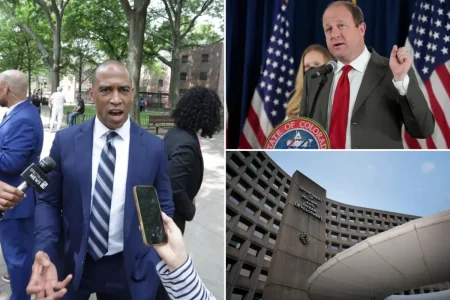Parisian Heist Investigation Expands as Two Additional Suspects Face Charges
Paris Authorities Widen Net in High-Profile Robbery Case as Four Suspects Now Stand Accused
In a significant development that has captured the attention of both Parisians and the international community, the robbery investigation that began with two primary suspects has now expanded to include two additional individuals. According to judicial sources close to the investigation, the Paris prosecutor overseeing the case has formally charged two more suspects in connection with the heist, bringing the total number of accused to four. The initial suspects, who had previously made partial admissions regarding their involvement in the robbery, remain at the center of what has evolved into a complex criminal investigation that continues to unfold across the French capital.
The Investigation Unfolds: From Partial Confessions to a Broader Criminal Network
The case initially gained traction when the two original suspects provided law enforcement with partial confessions, acknowledging some degree of involvement in the robbery while apparently withholding crucial details. These admissions, while limited in scope, provided investigators with valuable leads that ultimately led to the identification of the two newly charged individuals. “What we’re seeing is typical of organized criminal operations,” noted Pierre Dubois, a former police commissioner who now works as a security consultant. “Rarely are such sophisticated robberies carried out by just one or two individuals. There’s usually a network involved—some who plan, others who execute, and additional parties who handle the distribution of stolen goods.” The expansion of charges suggests that authorities have uncovered evidence pointing to a more elaborate operation than initially suspected, potentially involving careful planning and coordination among multiple participants with specialized roles.
Prosecutorial Strategy: Building a Comprehensive Case Against Multiple Defendants
The Paris prosecutor’s office has taken a methodical approach to building their case, carefully assembling evidence before extending charges to additional suspects. This strategic decision to widen the scope of the prosecution reflects the accumulation of substantial evidence through extensive police work, including surveillance footage analysis, forensic examination, witness testimonies, and digital communications records. Legal experts following the case suggest that the prosecutor is constructing a comprehensive narrative of the crime that accounts for both the individuals directly involved in the physical robbery and those who may have provided critical support through planning, logistics, or handling of stolen goods. “Prosecutors in such high-profile cases must be absolutely certain of their evidence before bringing additional charges,” explained Juliette Moreau, a criminal law professor at Sorbonne University. “The fact that they’ve moved forward with charging two more individuals indicates they believe they have established a compelling case linking these additional suspects to the criminal enterprise.”
The Broader Context: Rising Concerns About Sophisticated Criminal Networks in Paris
This case emerges against a backdrop of increasing concern regarding sophisticated criminal operations throughout Paris, particularly those targeting luxury establishments, wealthy residents, and tourists in the city’s most prestigious districts. The methodical nature of recent high-profile robberies has alarmed security experts, who point to evidence of professional criminal networks operating with increasing boldness and technical proficiency. Statistics from the Ministry of Interior indicate a 12% increase in organized robbery incidents over the past year, with particular concentration in the 1st, 8th, and 16th arrondissements—areas known for luxury shopping, upscale residences, and affluent visitors. “What we’re witnessing is not opportunistic crime but calculated operations carried out by individuals who have studied their targets, identified security vulnerabilities, and developed specific plans to exploit them,” observed Sophie Laurent, security director for the Paris Merchants Association. The current case has therefore taken on additional significance as potentially representative of this troubling trend, with authorities hoping that successful prosecutions might disrupt these emerging criminal networks.
Legal Challenges and Procedural Complexities in Multi-Defendant Prosecutions
The expansion of the case to include four defendants introduces significant procedural and strategic complexities for both the prosecution and defense. Under the French legal system, each defendant now has the right to independent legal representation, potentially leading to divergent defense strategies that could complicate the prosecution’s case. Additionally, the burden of proof becomes more nuanced when attempting to establish different levels of culpability among multiple defendants. “Cases involving multiple defendants frequently encounter challenges related to evidentiary standards and establishing the precise role of each participant,” noted legal analyst Antoine Bertrand. “The prosecution must not only prove that the crime occurred but must also convincingly demonstrate each individual’s specific contribution to the criminal enterprise.” Defense attorneys are likely to exploit any inconsistencies in the prosecution’s narrative, particularly regarding the exact role and knowledge of each participant. However, the partial confessions from the initial suspects may significantly strengthen the prosecution’s position, providing a foundation upon which to build their broader case.
What Lies Ahead: Investigative Priorities and Potential International Dimensions
As the investigation continues to develop, authorities are focusing on several key priorities that could further expand the scope of the case. Investigators are reportedly examining potential connections to similar robbery patterns in other European capitals, including Milan, Amsterdam, and Madrid, where comparable techniques have been employed in recent months. This has prompted increased cooperation between French authorities and their European counterparts through Europol channels. Additionally, financial investigators have been assigned to track the movement of assets following the robbery, with particular attention to potential money laundering operations that might reveal additional co-conspirators. “The most sophisticated criminal networks have established methods for quickly moving and laundering proceeds from such operations,” explained Michel Fournier, a financial crimes investigator formerly with Interpol. “Following this money trail often leads to additional participants who may never have been physically present at the crime scene but who are nevertheless integral to the criminal enterprise.” Public interest in the case remains high, with French media providing regular updates as new information becomes available. The Paris prosecutor’s office has indicated that additional information regarding the charges will be released following the completion of preliminary hearings, which are expected to continue throughout the coming weeks.
The expansion of charges in this high-profile robbery case represents a significant milestone in what has become one of Paris’s most closely watched criminal investigations. As four individuals now face the prospect of trial and potential imprisonment, the case continues to evolve, potentially revealing new dimensions of organized criminal activity in the French capital. With the investigation still active and prosecutors building their case methodically, the coming months will likely bring additional revelations about the full scope of the criminal enterprise and the specific roles played by each of the accused.








